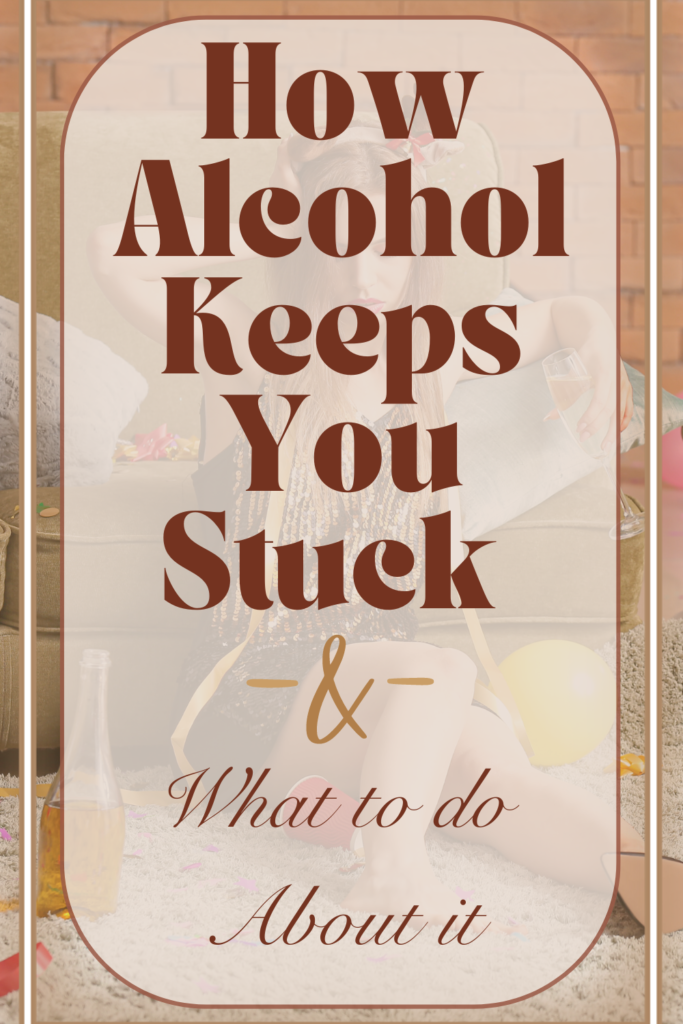Sharing is caring!
Boost Your Mood: Natural Vs Artificial
Do you ever feel like the way only way you manage to boost your mood is by doing something that isn’t the best for you like drinking alcohol ( a temporary and eventually-backfires-on-you-method), binge watching TV, or binge scrolling social media?
There are gentler and healthier ways to elicit feel-good hormones! Let’s talk about these feel-good hormones for a second!
Introducing: The Mood-Boosting Chemicals
The chemicals in your brain that are responsible for boosting your mood are dopamine, serotonin, and oxytocin. Norepinephrine and endorphins can also affect your mood by arriving into your body in bursts after an activity such as intense exercise.
How do we manipulate these hormones in a gentle and natural way? How do we, unknowingly, manipulate them in a way that isn’t so good for us and why aren’t these ways good for us? I’m going to answer these questions in this post! And of course, there’s a little education sprinkled throughout the post to take along with you!
This post may contain affiliate links to products. I make a commission if they’re purchased using the links I provide at no cost to you. Please go to my terms and conditions page for more information.
Increase Chemicals: Gentle vs Not Gentle
Let’s talk about the way we innocently, but unnaturally, elicit the production of the feel-good hormones in our bodies.
First, I’ll share a little fact that might be helpful for you to know: The amygdala is the processing center for emotions. It’s responsible for the “fight or flight” reaction in your brain. It hasn’t changed since the beginning of its existence and that will be good to know while you’re reading parts of this post.
A very important bit of education about our brain is that it’s pretty much the same brain that our ancestors had thousands of years ago. But the environment we’re in is so far from what it used to be thousands of years ago! So, our ancient brains are dealing with some insane changes to our environment! Our society is all about convenience and abundance and everything has been mass produced and pushed in our faces constantly. Our ancient brains weren’t hardwired to deal with this, so we’ve run into some problems.
Currently, if we want something we’re going to get it fast and if we don’t then we might experience deficits that we might feel in the form of depression or anxiety.
Homeostasis: When the Brain is at Peace
Pain and pleasure are felt in the same area of the brain. Our brain wants pain and pleasure to stay balanced (homeostasis). Not too much pain and not too much pleasure. So, when we find something that gives us too much pleasure all at once and then it stops, we feel just as much pain when it’s gone. Here’s an example: When we consume something like chocolate, according to research, our feelings of pleasure increase, from baseline, about 50%, sex 100%, nicotine (a drug) 150% and amphetamines (obviously another drug) about 1000%.
So, when we’ve had our last cigarette, instead of feeling a minor deficit, like 50% from chocolate, we feel a deficit of 150%! That, to our body, may feel extreme.
If you want to read an amazing book on how our ancient brains are having a tough time dealing with our over abundant society and what we can do about it then read this book: Dopamine Nation, by Anna Lembke! Such an eye opener!
We're In a Binge Culture
Your brain reacts the same way to binge watching and binge scrolling, binge online shopping, or binge eating because the action itself is a “bingeing” behavior. The only reason that we can “binge” on all these things is because our society and technology fully support and, dare I say, encourages us to do this. Binge drinking (5+/2 hours men and 4+/2 hours women) makes this list too!
Here’s a list of things we do that boost our moods but not in the healthiest way:
- Binge watching/scrolling
- Binge eating
- Binge online shopping
- Drinking/binge drinking alcohol
I have another post that goes into detail on how alcohol might be keeping you stuck & what to do about it. Check it out here!
Natural Ways to Boost Your Mood
Now let’s move on to the innocent and more natural ways to boost your mood!
- Nature therapy: Studies on the effects of nature therapy have shown an increase in the interactions between the pleasure receptors and the visual cortex. Other studies have shown that nature therapy has functioned to diminish cortisol (stress hormone) levels in the body which has led to decreased stress.
- Listening to music-music boosts the brain’s production of dopamine and this helps to relieve feelings of anxiety and depression. It has also been shown to reduce cortisol (stress hormone), lower blood pressure, and increase serotonin and endorphin levels.
- Exercise- Exercise increases serotonin and dopamine. It also creates bursts of norepinephrine and endorphins in the brain which can lead to a feeling of euphoria. It can also help improve and regulate neurotransmitter levels which ultimately makes us feel more mentally healthy.
- Learning something new- This can be rewarding, and, as a result, can lead to dopamine being released in the brain to help that new information stick.
- Cuddling with an animal or person- This releases oxytocin. Interesting fact: 20 seconds of hugging is all it takes to release oxytocin and hugging a pillow while experiencing stressful feelings can lower cortisol (stress hormone) levels!
- Meditation- Meditation involves focusing on breathing and attention while you’re in a comfortable posture. There are many ways to meditate and can be unique to each person. Mediation has measurable effects on the prefrontal cortex, amygdala, and hippocampus! It has been found to reduce stress, manage anxiety, and lower blood pressure. What a powerful practice! I’ve recently started myself and 10 minutes two times a day has made an immediate difference for me. I implore you to give it a try.
- Good sleep- good sleep= a more stable mood. Bad sleep= unstable mood, irritability. It’s as simple as that. Sleep affects the amygdala (emotion processing center of the brain). So, when you don’t get good sleep, you may have an “animalistic” way of reacting to situations because the amygdala doesn’t have the energy stored to process those emotions. Interesting fact: insomnia has been linked to mood disorders such as anxiety or depression.
In Conclusion...
I hope this information on all these natural methods of boosting your mood inspires you to give some a try. Giving your body a chance to feel good in natural ways leads to everything running more smoothly. Taking a step back from the artificial mood boosters can get your body back to an equal playing field feel-good hormones.
Do any of these methods appeal to you? Have you tried some of these and have they worked? Are unknowingly engaging in artificial mood boosting methods?
Please comment or leave feedback! Feel free to suggest some posts that you’d like to see😊 I love hearing from my readers!
Until next time,
Kristi
Written by Kristi, August 25th, 2023
Sharing is caring!


Meditation does wonders to balance your emotions. And it doesn’t take any special equipment! Just a quiet place to empty the noise and concentrate on your body. Sometimes we forget this practice and how powerful it affects us. Peace ☮️